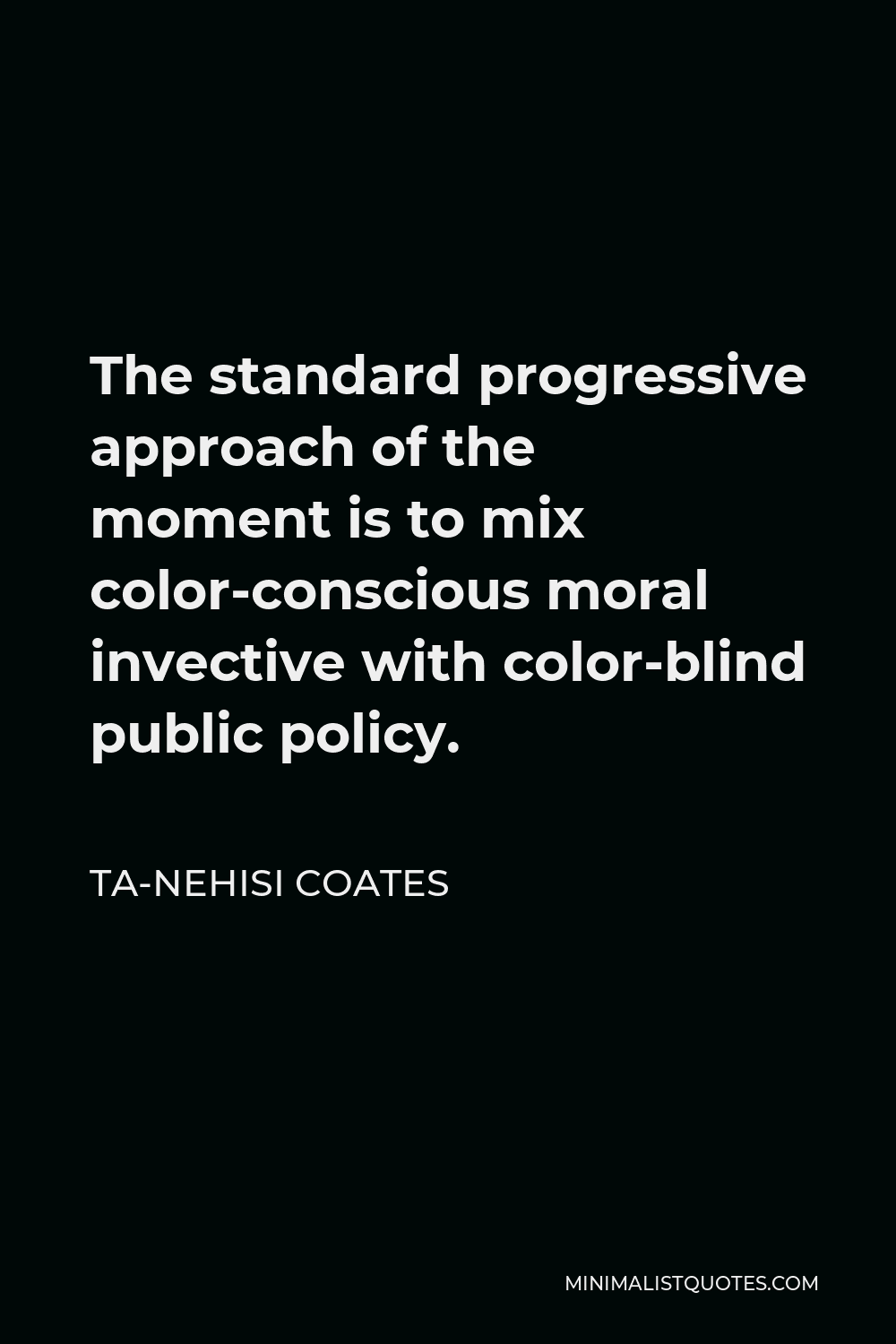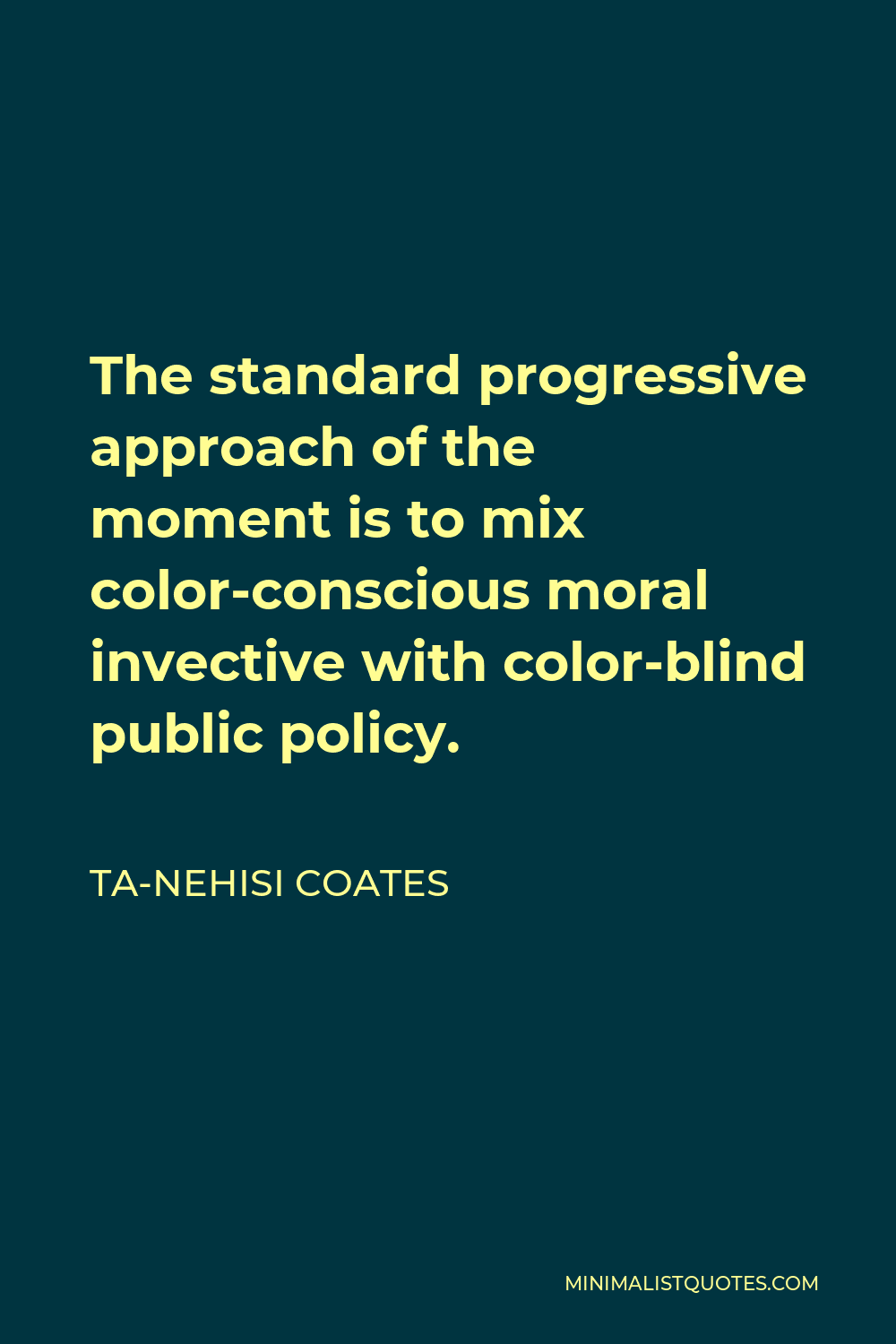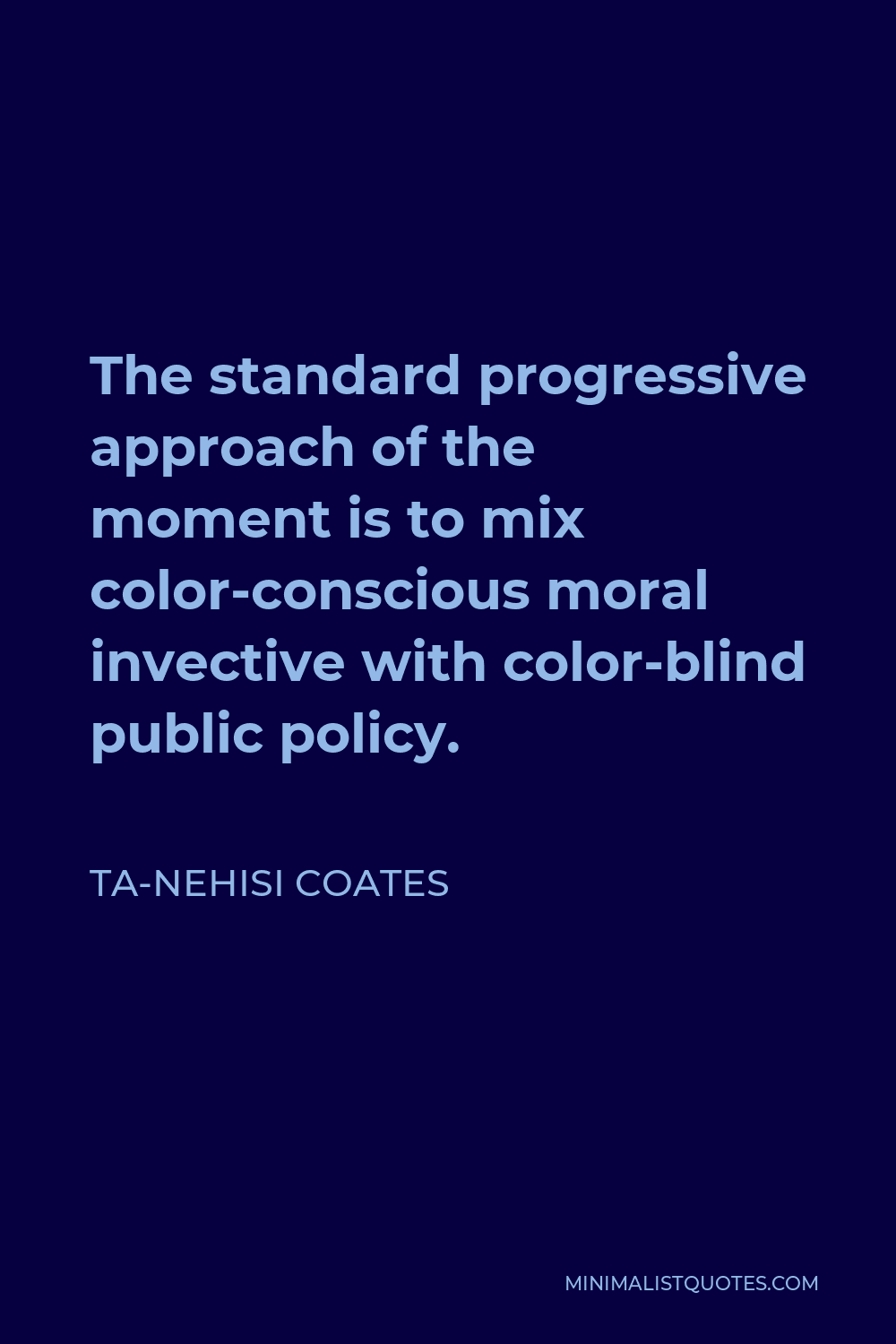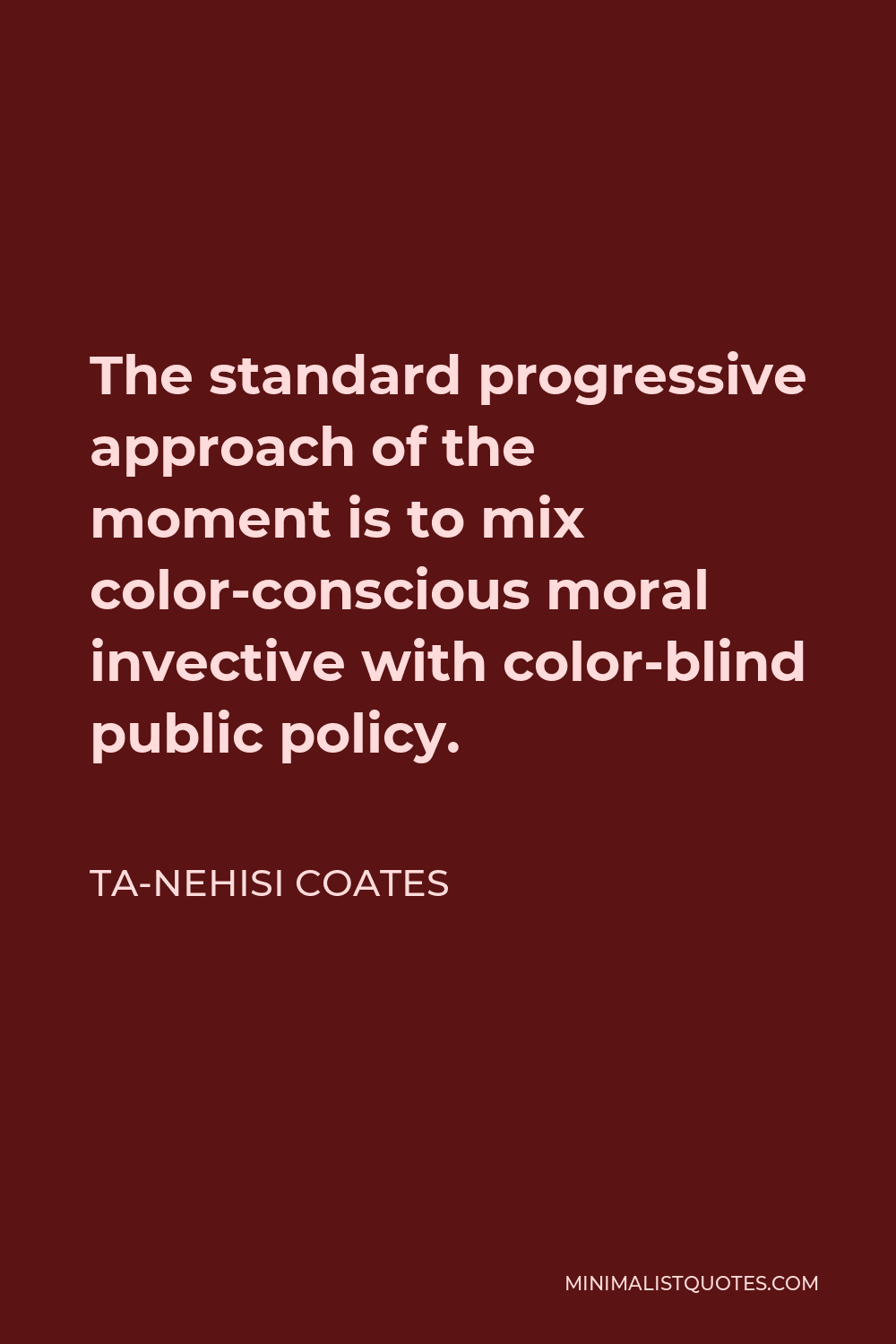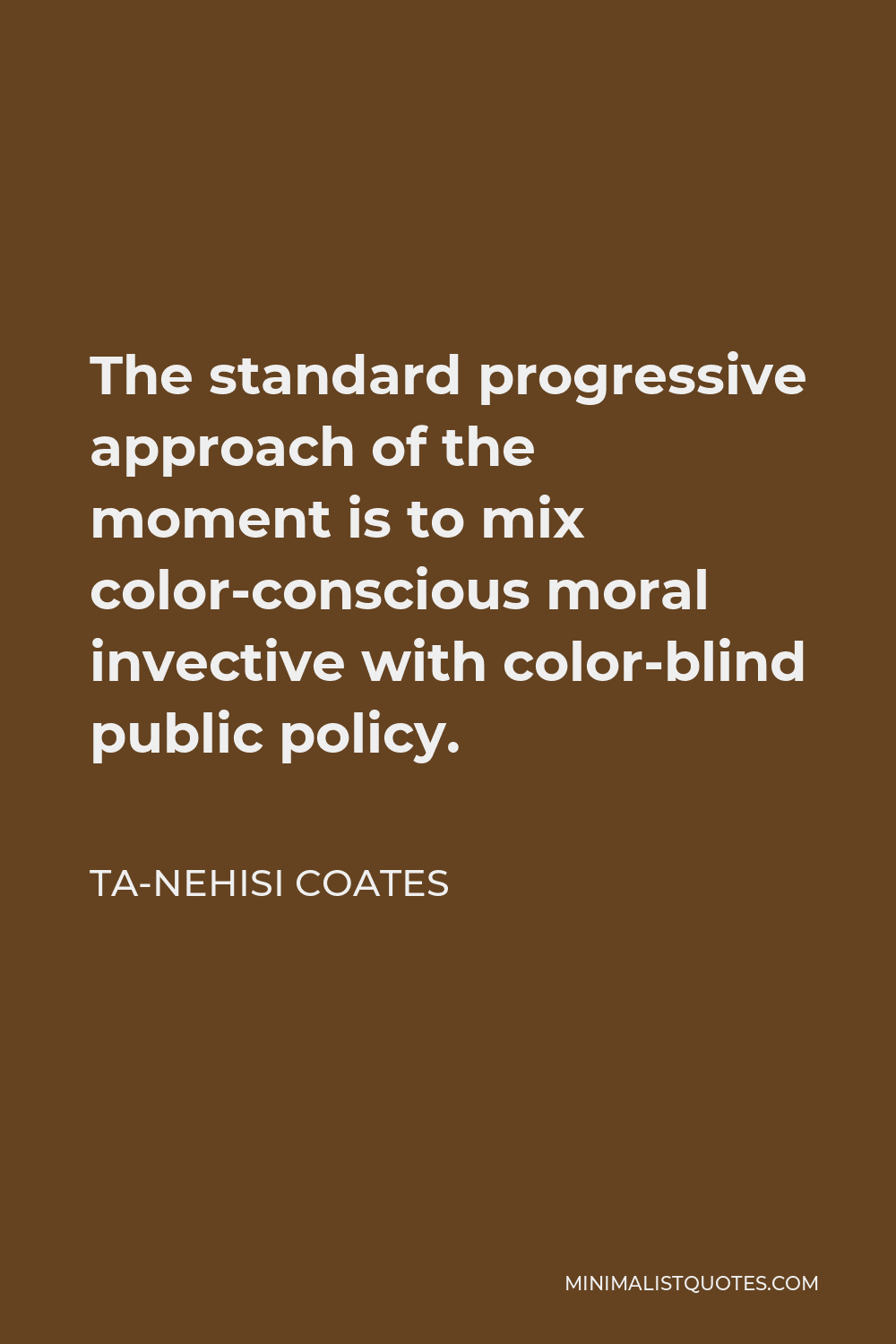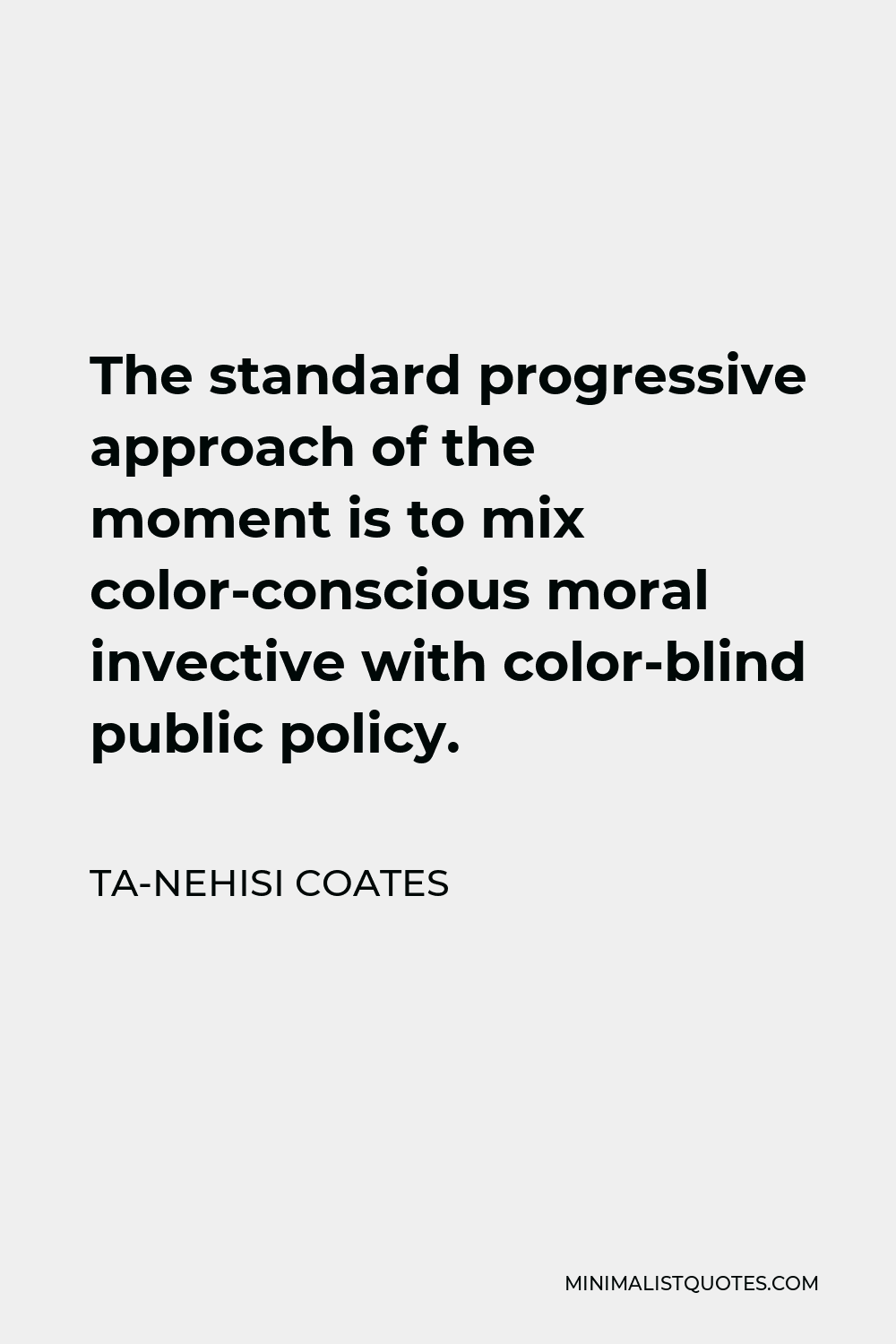The symbolism was in – and this sounds really, really small, but it’s actually big for African-Americans – the symbolism was not in being an embarrassment, but to being a figure that folks were actually proud of.
TA-NEHISI COATESThe standard progressive approach of the moment is to mix color-conscious moral invective with color-blind public policy.
More Ta-Nehisi Coates Quotes
-





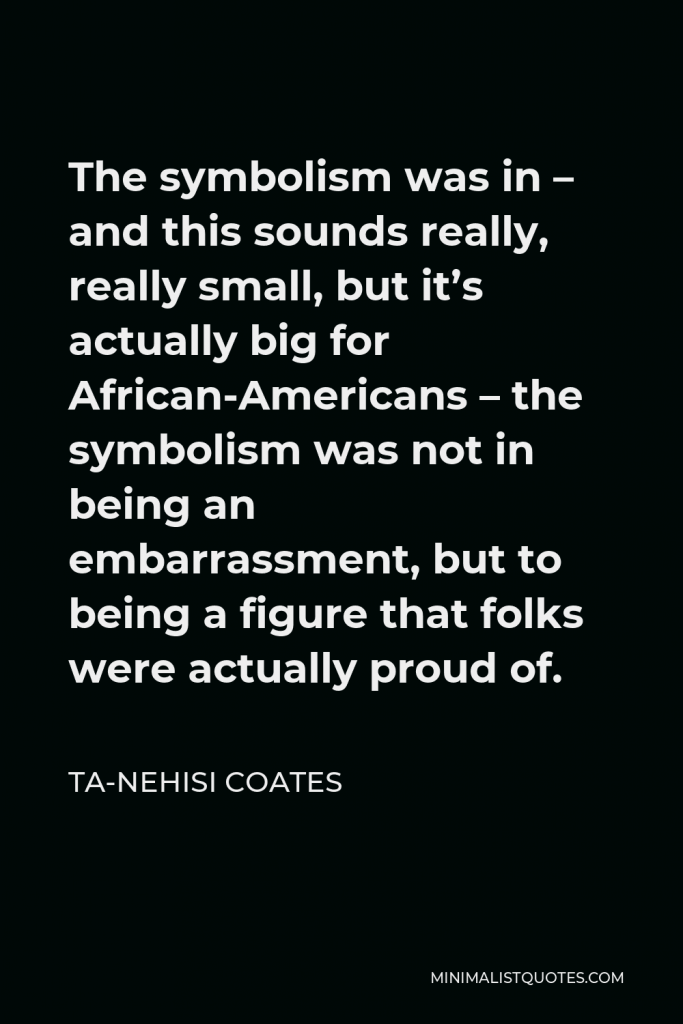

-





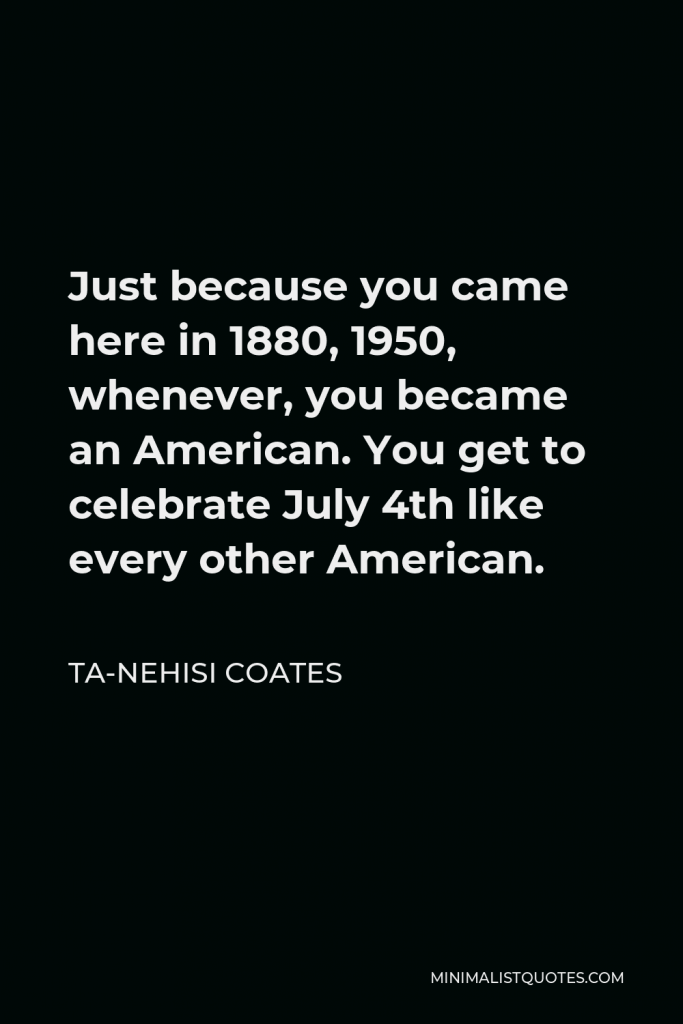

Just because you came here in 1880, 1950, whenever, you became an American. You get to celebrate July 4th like every other American.
TA-NEHISI COATES -





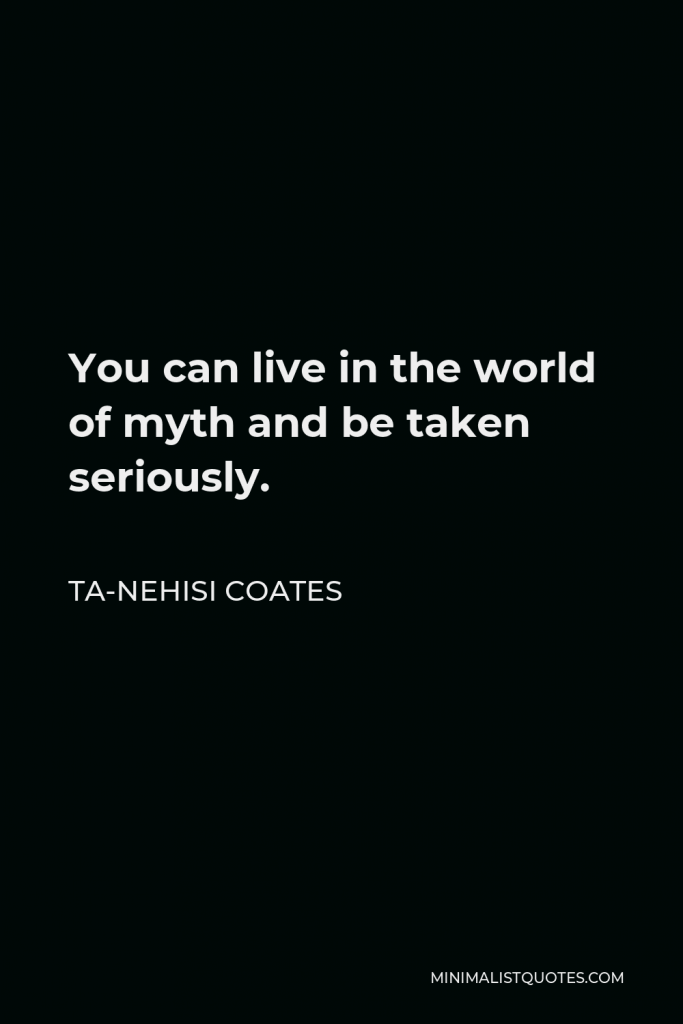

You can live in the world of myth and be taken seriously.
TA-NEHISI COATES -





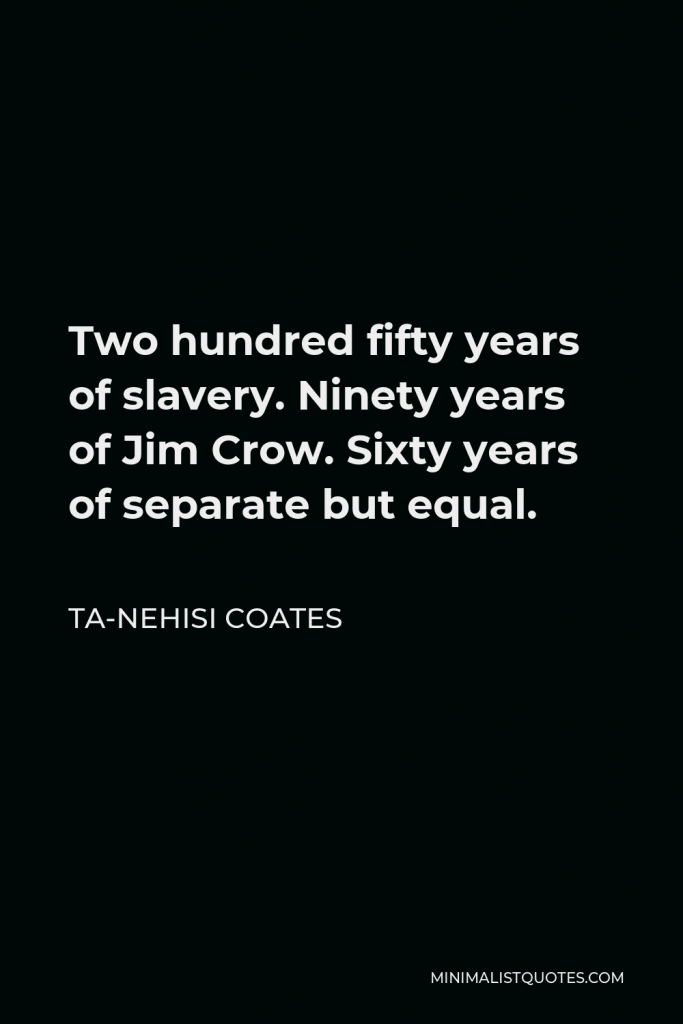

Two hundred fifty years of slavery. Ninety years of Jim Crow. Sixty years of separate but equal.
TA-NEHISI COATES -





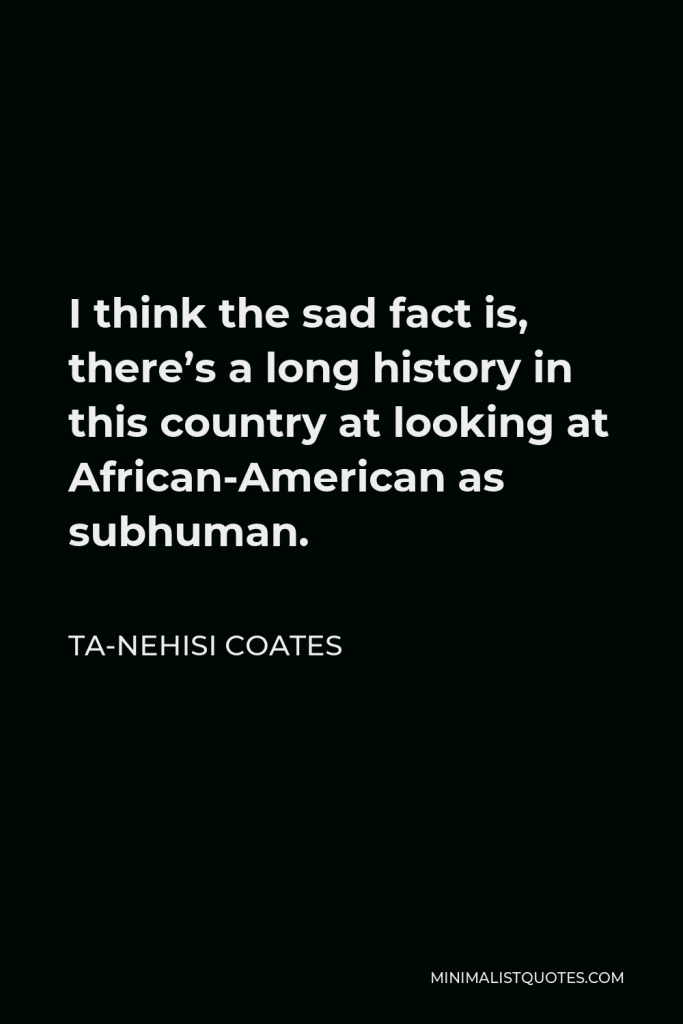

I think the sad fact is, there’s a long history in this country at looking at African-American as subhuman.
TA-NEHISI COATES -





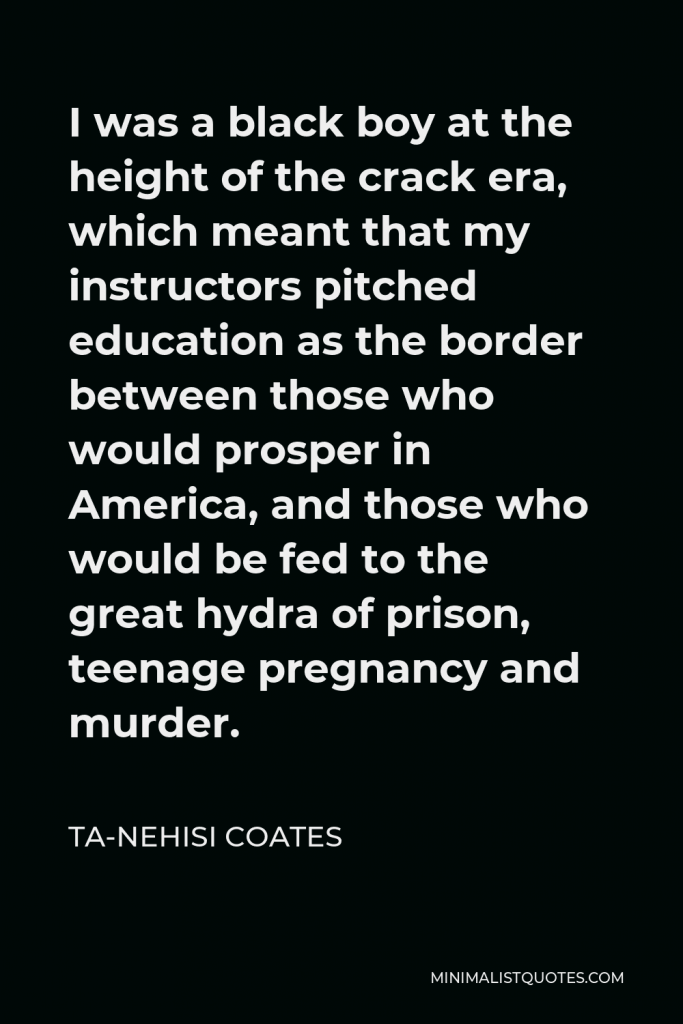

I was a black boy at the height of the crack era, which meant that my instructors pitched education as the border between those who would prosper in America, and those who would be fed to the great hydra of prison, teenage pregnancy and murder.
TA-NEHISI COATES -





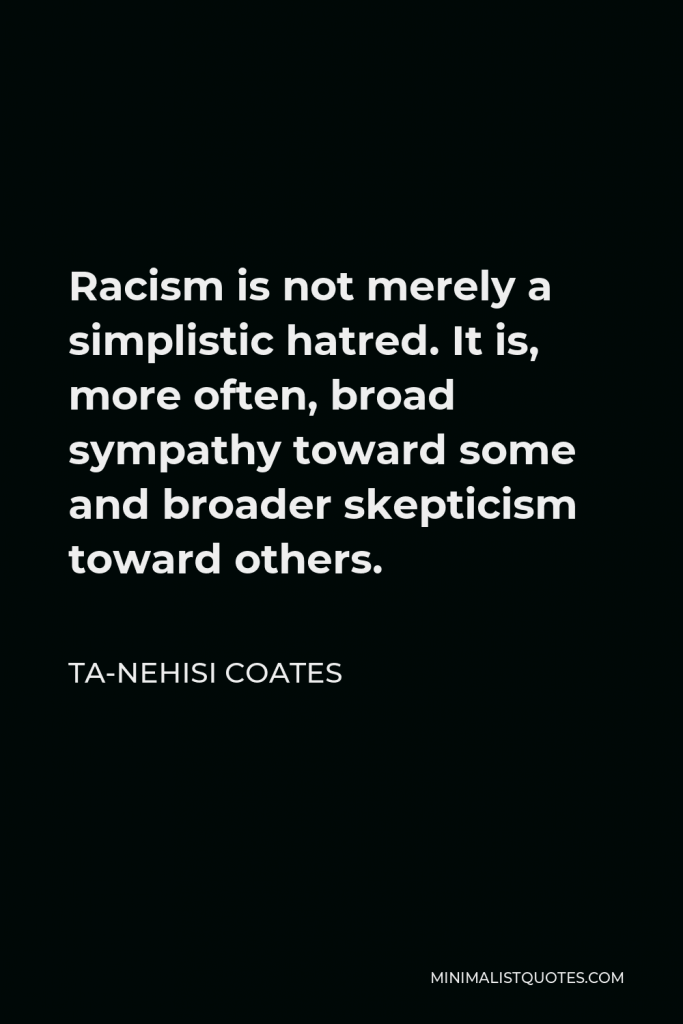

Racism is not merely a simplistic hatred. It is, more often, broad sympathy toward some and broader skepticism toward others.
TA-NEHISI COATES -







The greatest reward of this constant interrogation, confrontation with the brutality of my country, is that it has freed me from hosts and myths.
TA-NEHISI COATES -





![Ta-Nehisi Coates Quote - [Barack Obama] grew up in Hawaii, far, far removed from the most, you know, sort of violent, you know, tendencies of Jim Crow and segregation. He wasn’t directly exposed to that. He was untraumatized.](https://minimalistquotes.com/wp-content/uploads/2022/10/barack-obama-grew-up-in-hawaii-far-far-removed-fro-683x1024.jpg)

[Barack Obama] grew up in Hawaii, far, far removed from the most, you know, sort of violent, you know, tendencies of Jim Crow and segregation. He wasn’t directly exposed to that. He was untraumatized.
TA-NEHISI COATES -





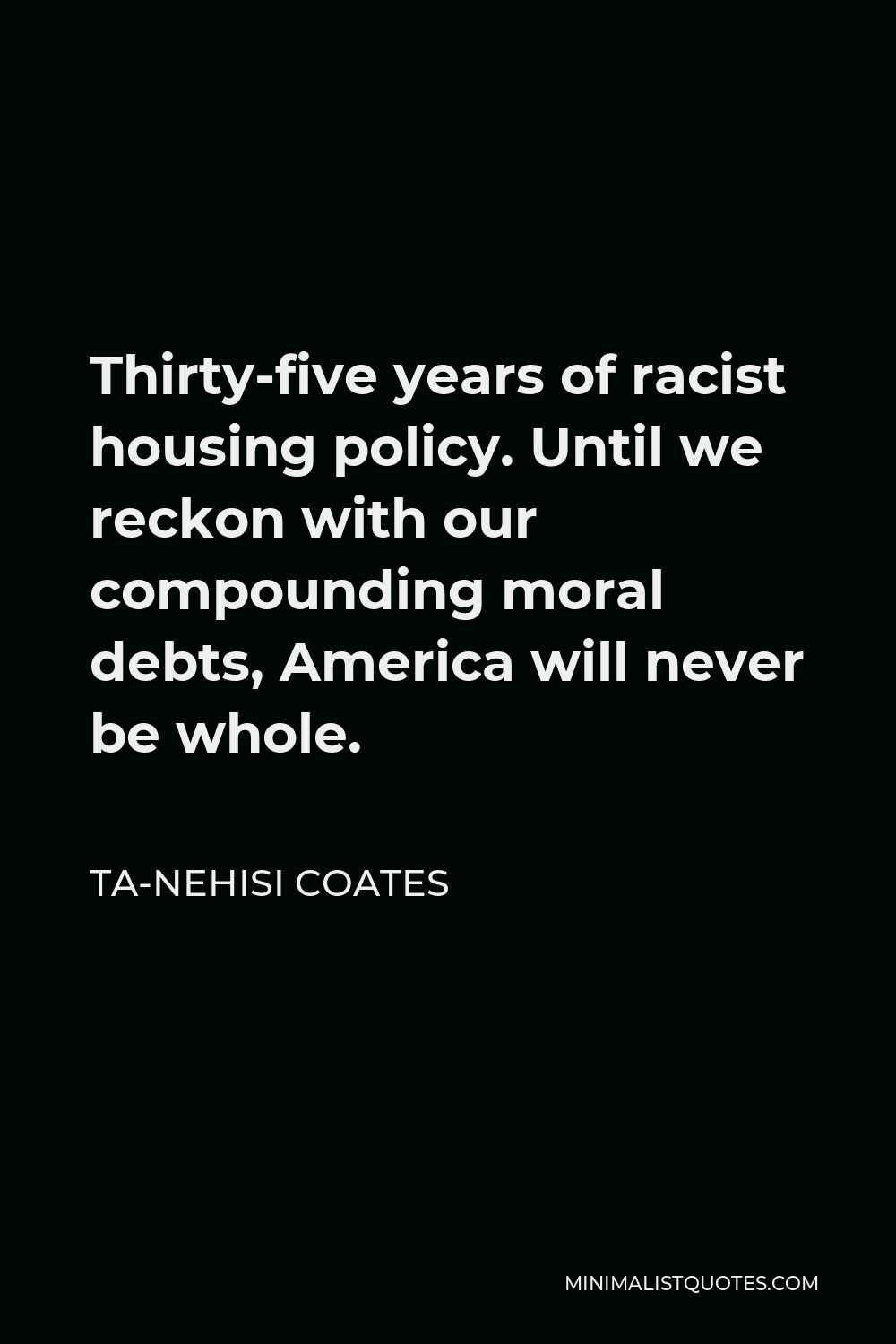
Thirty-five years of racist housing policy. Until we reckon with our compounding moral debts, America will never be whole.
TA-NEHISI COATES -







If George Washington crossing the Delaware matters, so must his ruthless pursuit of the runagate Oney Judge.
TA-NEHISI COATES -





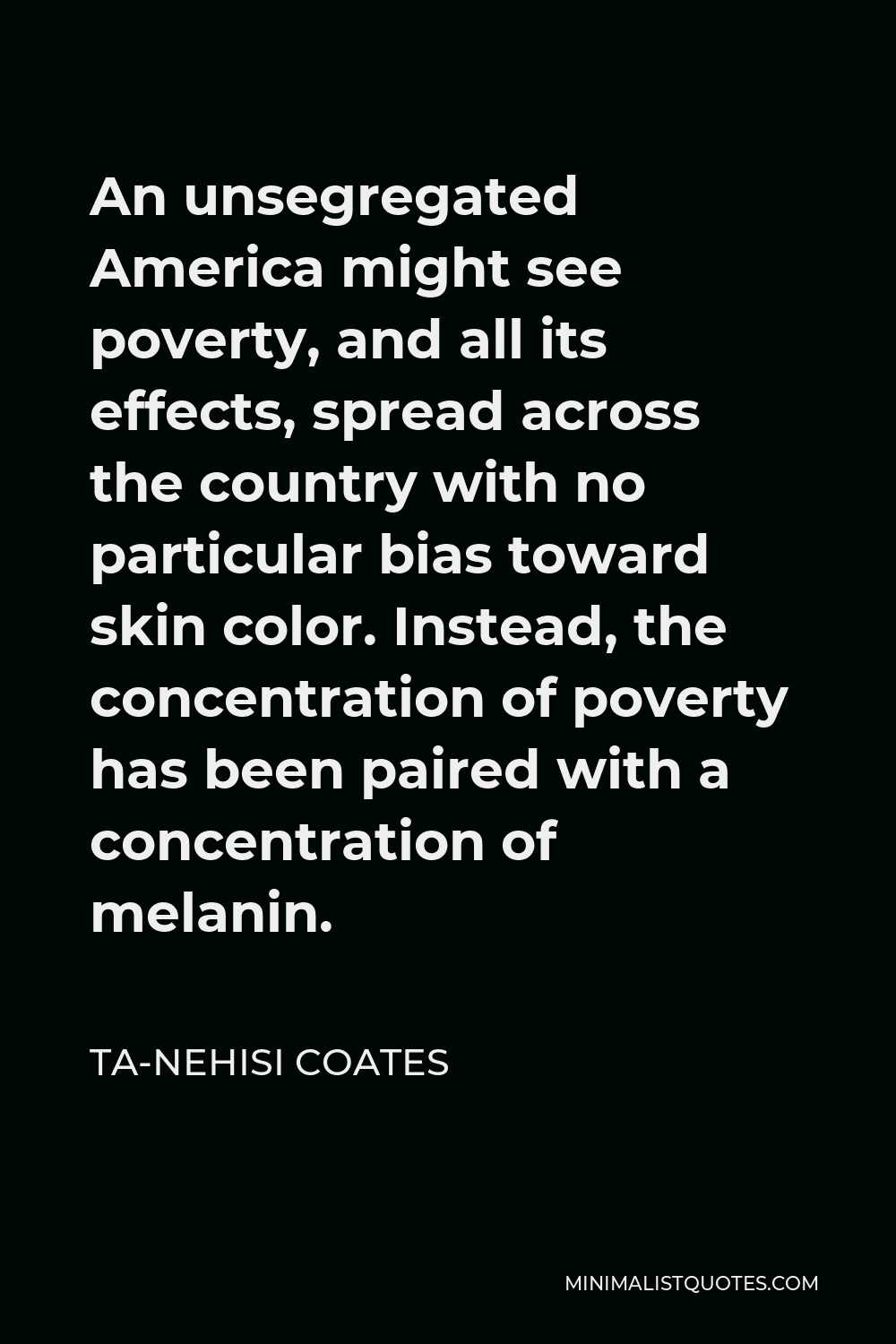
An unsegregated America might see poverty, and all its effects, spread across the country with no particular bias toward skin color. Instead, the concentration of poverty has been paired with a concentration of melanin.
TA-NEHISI COATES -







I don’t know how you bridge that contradiction, but I felt that Barack Obama was sincere. It didn’t feel like a line to me.
TA-NEHISI COATES -





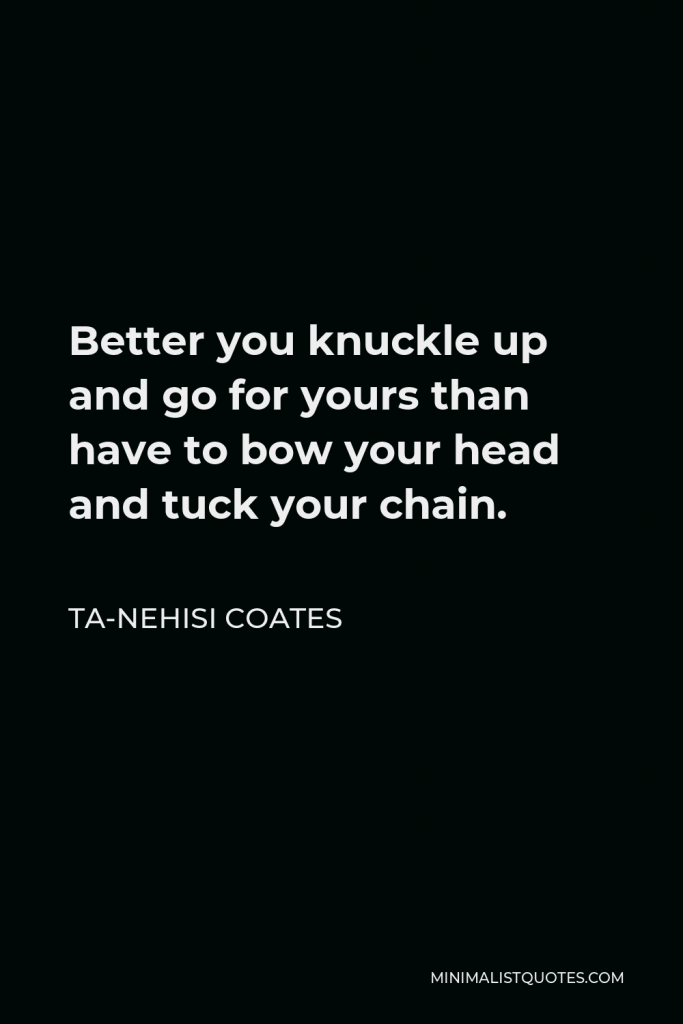

Better you knuckle up and go for yours than have to bow your head and tuck your chain.
TA-NEHISI COATES -





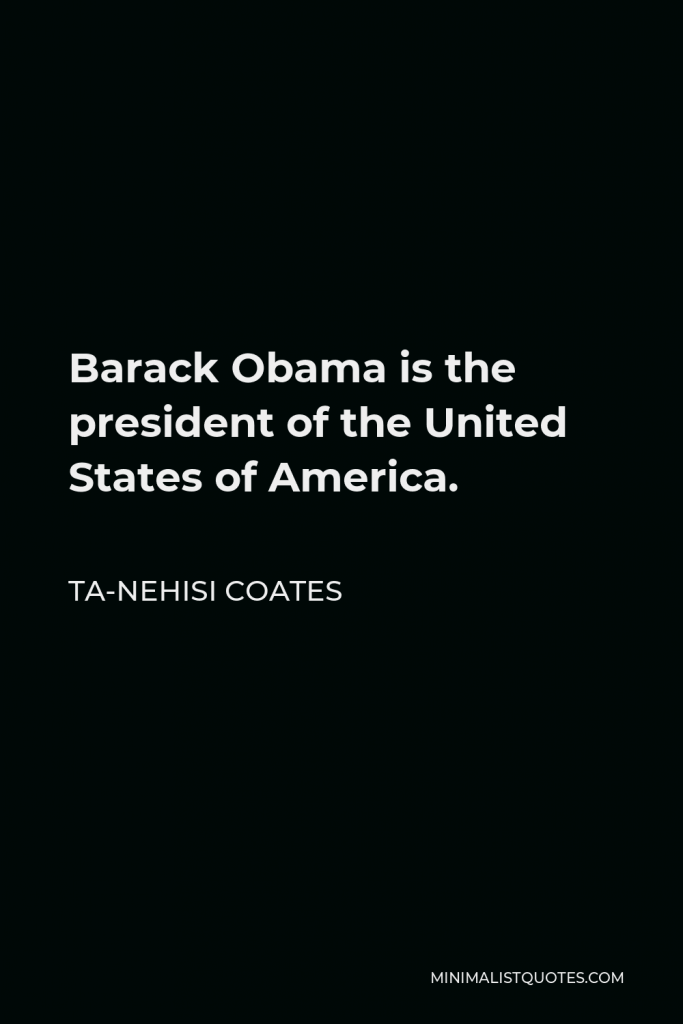

Barack Obama is the president of the United States of America.
TA-NEHISI COATES -





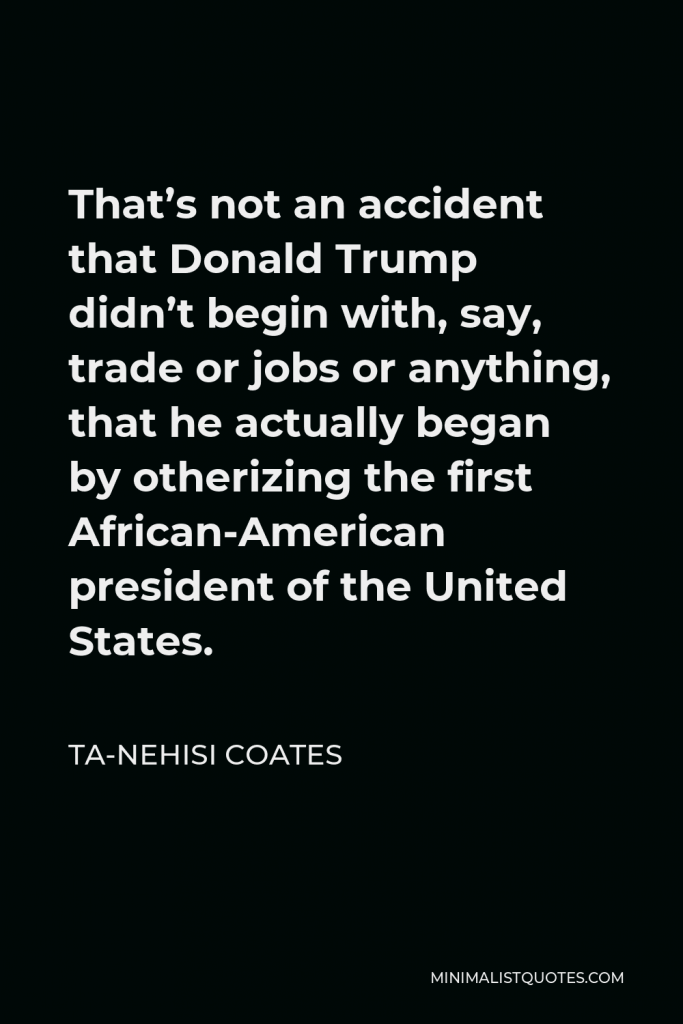

That’s not an accident that Donald Trump didn’t begin with, say, trade or jobs or anything, that he actually began by otherizing the first African-American president of the United States.
TA-NEHISI COATES
